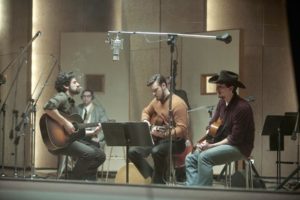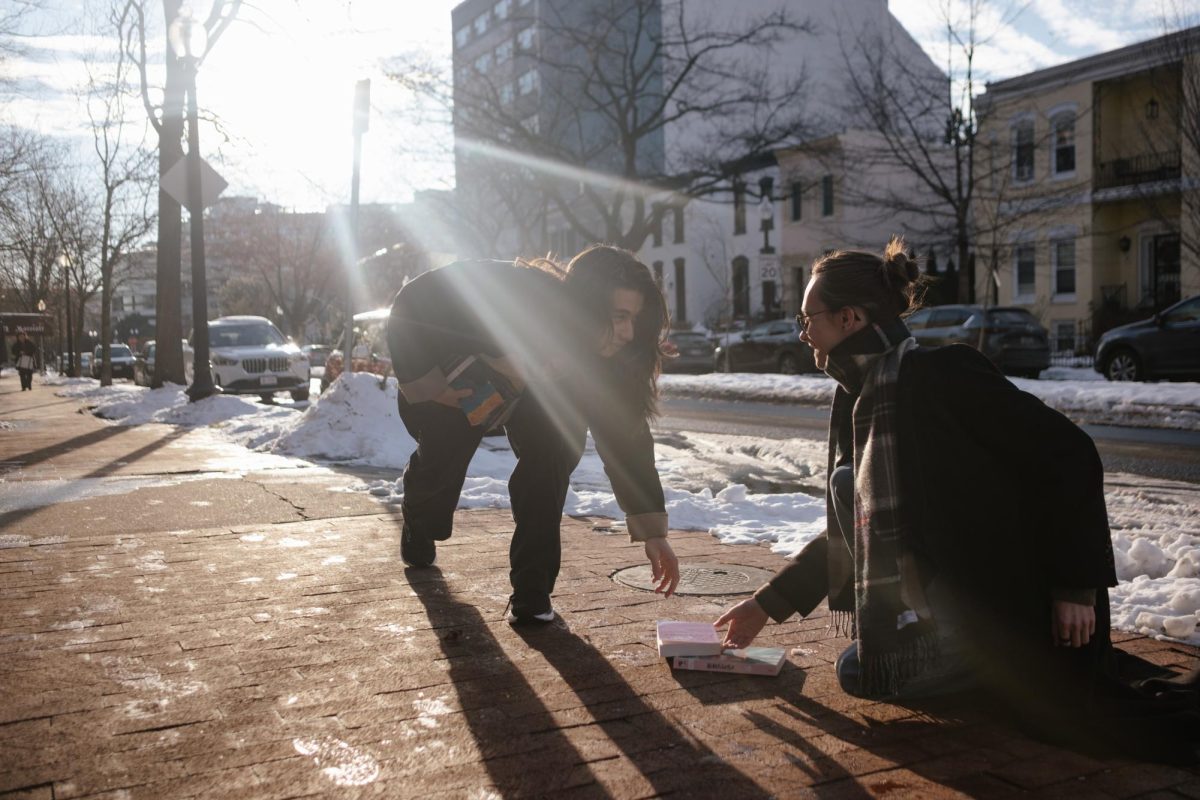This post was written by Hatchet reporter Tatiana Cirisano.
In the opening scene of Joel and Ethan Coen’s “Inside Llewyn Davis,” the struggling, folk-singing title character jokes, “If it’s never new and it doesn’t get old, it’s a folk song.”

The film, set to be released Dec. 6, shadows Davis (Oscar Isaac) through his misadventures in the 1961 folk haven of Greenwich Village, carrying nothing but a beat-up guitar, a single set of clothing, and a nameless cat. In a gritty plot that is both disheartening and refreshingly honest, Davis grapples with the misfortunes of his own personal downfalls.
For instance, when Davis finally arrives to audition for a gig at a nightclub after days of hitchhiking across Chicago, he chooses to play a slow, gloomy song instead of the potential hit he knows the owner would be more likely to enjoy. He sidesteps fames out to stay away from mass media conformity. He loses the opportunity to score the gig, and the nightclub owner bluntly replies, “I don’t see a lot of money here.”
Yet among the mishaps of Davis’ life lies the true focus of the film: his music. The film is set within the folk culture of the early 1960s, and dominated by music, featuring songs performed by Isaac himself as well as Justin Timberlake (Jim) and Carey Mulligan (Jean).
Growing up as a singer-songwriter in the band “The Blinking Underdogs,” Isaac said he feels a true passion for music. He enjoyed playing his original songs in coffee shops before the audition for the film came up.
“I’ve always written and recorded music, so this is just the perfect combination of everything that I’ve ever done,” Isaac said during a recent roundtable discussion in Georgetown.
The film itself reads like a folk song, beautifully weaving sad melodies with bursts of feeling in a narrative that is uninhibited, with all the songs performed in the film recorded live on set, adding to the film’s raw tone. To create an intimate performance, Isaac took a word of advice from the film’s music producer, T Bone Burnett, who said to “just play it like you’re playing it to yourself.”
“That really opened up the whole thing for me. I was like, ‘that’s how I should play the character, too,’” said Isaac, who also starred in the 2011 film “Drive.”
Live filming the music was “absolutely crucial and critical,” to Isaac, who said the feelings of exposure the live songs evoke relates to the vulnerability of his character.
“[Llewyn is] an isolated guy. He’s cut off from the world, he doesn’t connect with people, he’s an island unto himself. And so [singing] is the only bridge, the only window, into who he is,” he said.
Since winning the Grand Prix at the Cannes Film Festival last May, the film has received wide recognition for its delicate balance between wry, stinging humor and deep, emotive intimacy. The rough, witty and unapologetic style typical of the Coen brothers – known for offbeat cult films like “The Big Lebowski” and “Fargo” – reflects the directing approach taken by the duo, which Isaac said leaves no room for vanity.
“They don’t compliment, ever. It’s a little bit disconcerting the first day, but then after about the first week you don’t look for that anymore. So it takes away the need for approval. That was really refreshing,” Isaac said.
To prepare for the role, Isaac studied the folk songs of his contemporaries, most notably Dave Von Ronk, whose career the film is partly based on. He also had to severely alter his outgoing, warm personality to transform into the cynical Llewyn.
“One of the things I did was, for instance, I would go to a party and just not smile at anybody, but still try to connect,” Isaac said. “And what would happen was, it would be really exposing. Because someone would either think you’re an asshole, or the other thing that would happen was immediate intimacy.”




